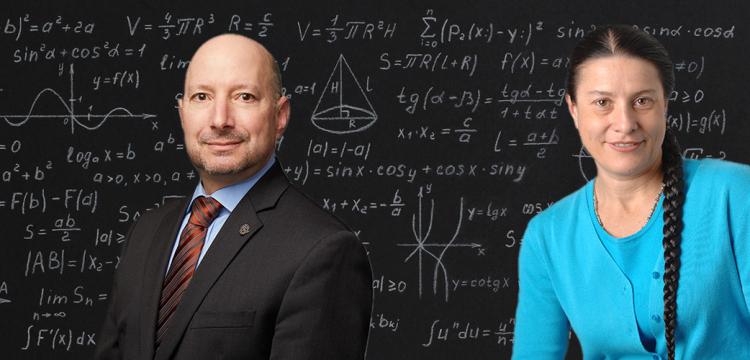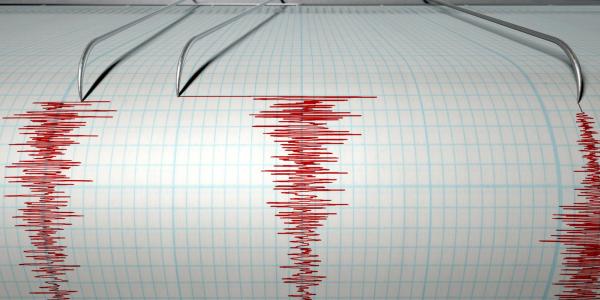CU Boulder professors Noah Finkelstein of physics and Valerie Otero of education have won the 2023 Svend Pedersen Award and Lecture from Stockholm University
Two experts in science education at the University of Colorado Boulder have won the Svend Pedersen Award and Lecture of 2023 for their “major and lasting” contribution to science education, Stockholm University has announced.
Noah Finkelstein, professor of physics, and Valerie Otero, professor of science education, share the 2023 award and are planning to deliver a joint lecture in Sweden early next year.
Stockholm University bestows the Svend Pedersen Award and Lecture annually to a researcher who has made a “major and lasting contribution” within the fields of mathematics education or science education internationally.
The award, which was unsolicited, recognizes their joint contribution to “teacher education praxis.” The cross-disciplinary collaboration between physics and education “led to the development of the highly influential and successful Learning Assistant Program,” Stockholm University said.

Noah Finkelstein and Valerie Otero
“Finkelstein and Otero are both leading researchers in physics/science education, and both their individual and collaborative work has gained recognition internationally and inspired researchers at the Department of Teaching and Learning at Stockholm University,” the award citation notes.
Finkelstein’s research focuses on university students’ interests and capacities in physics and also on educational transformations. Finkelstein is one of leads of the Physics Education Research (PER) group and was founding co-director, with Otero, of CU’s Center for STEM Learning.
Otero’s research focuses on the interplay of learning environments, instructional teams and materials that make learning more accessible. Otero is the faculty director and co-founder of CU Boulder’s Learning Assistant Program and the International Learning Assistant Alliance.
Finkelstein’s research projects range from the specifics of students’ learning particular concepts to the departmental and institutional scales of sustainable educational transformation. His research has yielded more than 150 publications.
He is increasingly involved in education policy and in 2010 testified before the U.S. Congress on the state of STEM education at the undergraduate and graduate levels. He serves on many national boards, including chairing both the American Physical Society’s Committee on Education and PER Topical Group.
He is a Fellow of both the American Physical Society and the American Association for the Advancement of Science, and a Presidential Teaching Scholar and the inaugural Timmerhaus Teaching Ambassador for the University of Colorado system.
Explaining his research focus, Finkelstein says, “At root, I see higher education as a fundamental public good—advancing the lives of individuals and capacities of our societies more broadly. In the long haul, I know of no better way to enhance societies and individuals' lives than to support the core missions of our colleges and universities, and to help them realize the promises that they hold toward these ends.”
He acknowledges that there is much work still to do. “And that's where I spend my time—through teaching and educational programs, through my research and scholarly work, and through my professional service efforts. I particularly focus on higher education—colleges and universities—as these are a tremendous resource and lever for change in our broader educational system.”
Partly in response to expert warnings that the nation was falling behind its international peers in science education, U.S. educators have in the past two decades renewed their focus on science, technology, engineering and mathematics (or STEM) education. This focus is reflected in levels of funding, national discourse, programs focused in STEM, numbers of students, diversity of students and even faculty hiring trends, Finkelstein says.
I see higher education as a fundamental public good—advancing the lives of individuals and capacities of our societies more broadly. In the long haul, I know of no better way to enhance societies and individuals' lives than to support the core missions of our colleges and universities, and to help them realize the promises that they hold toward these ends.”
“Two decades ago, it was far less common to find discipline-based education researchers—folks such as myself hired into disciplinary departments to conduct research on education from within,” he observes, adding that when he was hired in 2003, CU Boulder was “extremely forward-looking” in such a hire.
“Now it is both much more common and CU has established itself as an international leader in this space, boasting researchers across a wide array of disciplinary departments focusing on education and in schools of education focusing on undergraduate science learning,” he says.
Finkelstein also notes that educators have broadened goals in their courses “to focus on the whole array of learning and educational practice, rather than the initial staples of attending to students’ conceptual understanding and algorithmic capacities.”
Now, he adds, “we are attending to how students think about our fields; what habits of mind they are developing; how we build inclusive environments and support a sense of belonging among the breadth of learners; who we are not including and why.”
Additionally, educators have also moved way from viewing their jobs as “fixing students” or addressing their "deficiencies" and now place greater emphases on the “systems that our learners are participating in to support their substantial capacities.”
Otero is internationally recognized for her foundational work with the Learning Assistant (LA) model and the International LA Alliance. The LA model was established in 2001 when Otero was hired by the University of Colorado Boulder in STEM education and as the first physics education researcher at CU Boulder.
She is a President’s Teaching Scholar and served as an advisor for NASA, on committees for the National Academy of Science and is a fellow of the American Physical Society, which awarded her team the Excellence in Physics Education Award in 2019 for their work on the LA model.
The LA model improves student success by increasing the diversity of CU Boulder’s instructional teams through the inclusion of pedagogically trained undergraduate LAs. Otero’s team provides continuing development opportunities for professors and undergraduates, supporting their growth as educational leaders, mentors and state-of-the-art educational innovators.
“Working with LAs has helped me refresh my teaching strategies and resist the temptation to just do what's worked in the past,” a participating professor commented. “I enjoy helping LAs take on responsibility and gain confidence in their leadership skills, and in turn, this experience reminds me of the greater purpose and goals of education.”
LAs rarely provide direct instruction; instead, they facilitate group interactions, answer questions that students may be embarrassed to ask instructors and give general guidance such as how to study and where to find health care resources.
They relate to students, give them voice, care about them and help them learn. LAs plan and reflect with professors, providing information about how students are experiencing the course, bringing students closer to the professor, especially in large courses.
Learning Assistants maintain both a peer and educator role, which may allow the breaking down of psychological barriers in the minds of students due to formal boundaries, possibly preventing them from seeking help for fear of bothering the professor or appearing incompetent.”
participating LA observed, “LAs maintain both a peer and educator role, which may allow the breaking down of psychological barriers in the minds of students due to formal boundaries, possibly preventing them from seeking help for fear of bothering the professor or appearing incompetent.”
Today, approximately 400 LAs are hired each year at CU Boulder, serving more than 20,000 students each year. Research shows that students who have experienced a STEM course with LAs are 60% more likely to succeed in subsequent STEM courses. The model has caught on.
Universities all over the world have realized that the LA model can transform their institutions, building lasting capacity for sustained offerings of high-quality, learner-centered instruction.
In these settings, students feel included and valued and are comfortable accessing multiple forms of support in and outside of the classroom. The thousands of CU Boulder students who have served as LAs and LA mentors have become effective leaders, teachers and team members, prepared for the increasingly diverse and interdisciplinary workforce.
On Oct. 27, professors from universities around the world will come to CU Boulder, as they do each year, to learn about and share research regarding the LA model.
Otero founded the Learning Assistant Alliance in 2009, and since then, more than 3,000 professors from more than 560 universities and 28 countries have joined. Otero has been invited to Norway, Egypt, Japan and the United Kingdom to provide guidance and support for country-level adoptions of the LA Model.
Otero is also known for her foundational work with PEER Physics, a high school physics curriculum and teacher professional learning community adopted by high schools from Seattle to New York.
“We used to be gullible before this class, but now evidence has our backs,” a PEER Physics student said, while another noted, “This course has provided a very safe and helpful learning environment for me. This class is all about working with others and has really helped me learn the material—it has also lifted my spirits about the science subject in general.”
A PEER Physics teacher said, “PEER Physics gives ownership to students who haven’t had ownership in other science classrooms before. It empowers them to take charge of their own learning rather than just being fed information. I think it challenges their analytical skills.”
Another teacher said, “I think if the PEER Physics teacher community didn’t exist, I would have left education. This has kept me in, really enhanced my life, and the life of my students.”
Otero found empowerment and joy in physics when she took her first physics course at the University of New Mexico. “I always loved learning,” she says. “My dad always taught us that learning is a great privilege, and I committed my life to making positive learning opportunities available for students like me.”
As a first-generation college student, Otero has first-hand knowledge about how a Hispanic woman can navigate physics and academia and achieve great success through a supportive community like CU Boulder. Otero says that she developed leadership skills by working at her parents’ grocery store and at the New Mexico State Fair since she was 12.
Twenty-three years after starting at CU Boulder, she continues to work with the Learning Assistant Alliance and PEER Physics to find ways to include, rather than exclude, people from physics.
Did you enjoy this article? Subcribe to our newsletter. Want to learn more? View Otero's Ed Talk at this link.



